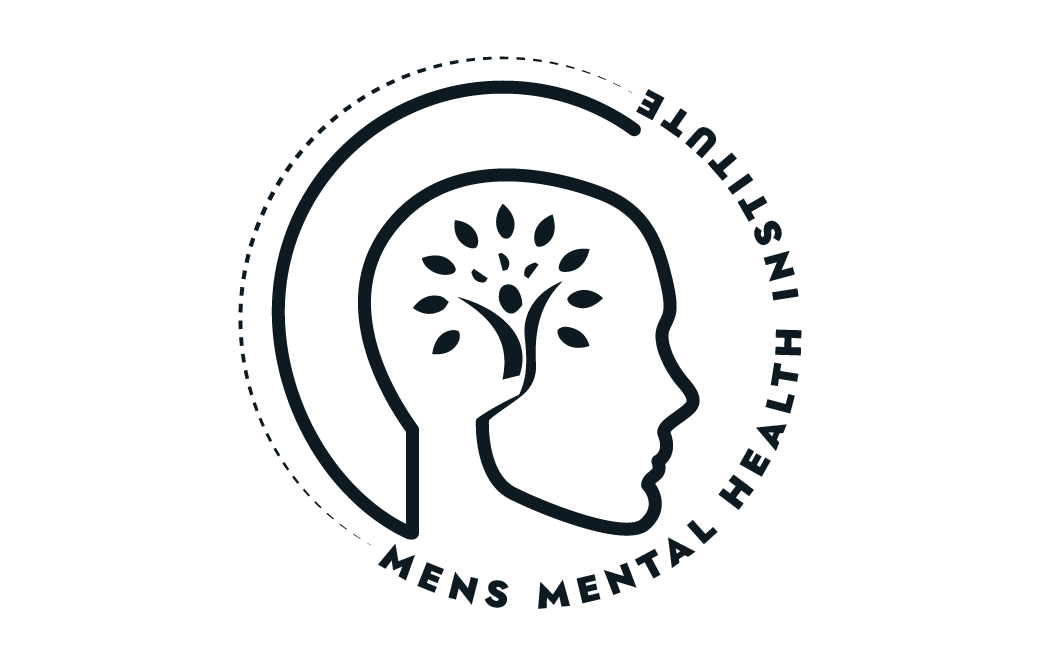Porn, Sex & Addiction
Why Porn Feels Like the Only Safe Outlet,for Now
You told yourself you’d stop. You minimized the tab. You deleted the app. But then the stress hits. The boredom. The loneliness. That empty craving in your chest. So, you go back to porn. Again. And you’re not alone. Men today are turning to porn not just for pleasure,but as a coping mechanism. It’s predictable. It’s instantly rewarding. It doesn’t judge, demand, or reject. But over time, what felt like harmless escape can evolve into compulsive behavior,one that hijacks your energy, your confidence, your drive, and your connection to real intimacy. From a behavioral psychology perspective, porn use can become a conditioned loop,trigger, urge, behavior, relief. The male brain is especially susceptible to this pattern because of its reward wiring: visual novelty + climax = massive dopamine release. Over time, this hijacks your natural motivation circuits. Evolutionary psychology reminds us that the male mating drive evolved in a world of scarcity, where sex was relational, risky, and earned through value. Modern porn short-circuits that system. You get the illusion of mating success,without effort, risk, or connection. That illusion becomes addictive. Social psychology adds another layer. Today’s culture discourages masculine sexual expression while simultaneously flooding your feed with hypersexualized content. You're shamed for desire,then sold it nonstop. Add in isolation, performance pressure, and disconnection from tribe, and you’ve got the perfect storm for porn dependency. And let’s be honest—the mental health field has been slow to treat this seriously. Some therapists downplay porn addiction. Others over-pathologize it without understanding what it actually represents: a man trying to regulate pain, numb shame, or meet unmet needs in a system that gives him no roadmap. Big Pharma offers pills for erectile dysfunction caused by porn,but rarely addresses the cause. Diagnoses are thrown around, but rarely help men understand their core drivers: loneliness, boredom, rejection, or unresolved trauma.Therapeutic Strategies for Reclaiming Control
You don’t need to shame yourself. You need a plan that works with your biology,not against it.Urge Mapping + Trigger Disruption (CBT + Behavioral Therapy)
We work with you to identify your porn use triggers,whether it’s boredom, rejection, late nights, or emotional dysregulation. Then we map new, actionable responses that meet the same need in healthier ways. Not through willpower,but through rewiring.Dopamine Reset + Reward Substitution
Your brain is overstimulated. Part of healing is rebalancing dopamine through real-world rewards: cold exposure, weight training, focused work sprints, challenge-based goal setting. You learn to crave real wins,not artificial highs.Somatic + Nervous System Regulation (Polyvagal + DBT)
Many men use porn to escape internal states they don’t know how to tolerate,shame, boredom, loneliness, anger. We teach you how to feel those states without fleeing them. You learn to breathe through the urge instead of obeying it.Root-Cause Processing (Parts Work + Inner Child Integration)
Compulsive behavior isn’t about sex,it’s about unresolved emotional pain. Often, it’s the 12-year-old boy inside you who feels unloved, rejected, or powerless. We help you meet those wounds with leadership, not avoidance.What You Gain in Love, Life, Wealth, and Mental Health
In love, your desire shifts from pixels to real people. You build emotional safety, eye contact, chemistry, presence. You stop dissociating during sex. You become a better lover,not just in performance, but in depth, attunement, and emotional availability.In life, your time and energy return. Porn is a drain,on your ambition, your self-respect, your relationships. With freedom comes clarity. Motivation. Fire. Discipline. You become the man who acts, not escapes.
In mental health, shame dissolves. You no longer carry the quiet belief that something is broken in you. You understand what your brain was trying to do,and you finally give it what it actually needed.
In wealth, your creative energy returns. Your ability to focus, take risks, pursue high-reward goals becomes sharp again. You stop leaking masculine energy into dead-end habits and start investing it where it builds a legacy.
You’re not addicted to porn.
You’re disconnected from power, connection, and purpose.
Let’s change that.
You’re Still Together,But Something Feels Off
You still love her. You’re still physically attracted. But something’s shifted. You’re more distant. Less motivated to initiate. She feels it too,maybe she’s called it out. Maybe she hasn’t. But the tension is there. You’re turning to porn more often. Not because she’s not enough,but because it’s easier. No pressure. No rejection. No emotional demands. But now you’re asking yourself: Is this... messing with us? From a behavioral psychology standpoint, porn is a high-reward, low-effort substitute for real intimacy. The mammalian brain responds to novelty and ease,so while your partner offers depth and complexity, porn offers predictability and variety. And it’s accessible 24/7. Evolutionary psychology tells us men are wired to seek novel stimulation for reproductive advantage. But your biology didn’t evolve in a world of unlimited porn. What was once adaptive is now short-circuiting your arousal system. You’re bonding with pixels instead of people. Social psychology adds a relational layer. Porn may feel private,but it impacts how you show up emotionally. It can foster secrecy, reduce touch, and shift your expectations of intimacy. Your partner feels the withdrawal, even if she doesn’t understand the source. What’s worse? The mental health field often avoids this conversation. Some therapists call porn use “harmless,” ignoring the relational damage it can cause. Others over-pathologize it, shaming men instead of helping them understand what’s underneath. And Big Pharma? It’s quicker to medicate your ED than explore its roots in overuse and disconnection. Porn is not the enemy. But when it becomes your main form of release, it rewires your brain. You start craving simulation over sensation. Performance over connection. Control over vulnerability. And your partner? She starts feeling like second place.Therapeutic Strategies to Restore Intimacy
The goal isn’t to punish yourself or cut off all desire,it’s to retrain your brain to crave real intimacy over artificial arousal.Arousal Reconditioning (CBT + Exposure Work)
We gradually reduce your dependency on porn through rewiring your arousal pathways. This may involve temporary abstinence (dopamine reset) or reconditioning arousal through mindfulness, presence, and physical connection with a real partner,not fantasy.Emotion-Focused Couples Therapy + Conflict Repair
If your partner is aware of the issue, we bring her into the process in a non-shaming, emotionally safe way. Together, we explore what porn use has come to represent in the relationship,avoidance? lack of communication? sexual tension?—and rebuild trust and closeness.Attachment Work (Parts Therapy + Somatic Experiencing)
Often, porn isn’t about lust,it’s about escaping anxiety, fear of intimacy, or fear of inadequacy. We identify the inner parts of you that feel unsafe being truly seen or rejected. Then we build capacity to stay present through those feelings, not run from them.Values Clarification + Boundaries (Solution-Focused + ACT)
We explore what kind of man, partner, and leader you want to be. Do your current habits align with that vision? If not, we help you build micro-habits, environmental shifts, and tech boundaries that support your integrity and deeper connection.What You Gain in Love, Life, Wealth, and Mental Health
In love, you reconnect,not just sexually, but emotionally. You initiate from desire, not guilt. You create space for eroticism that’s alive, not scripted. Your partner feels seen again,not just compared. In life, you start engaging again. Porn numbs ambition, kills drive, and replaces connection with quick fixes. Once free, your energy returns,to lead, build, and live fully. In mental health, the internal war ends. No more secret shame. No more cognitive dissonance between the man you want to be and what you do when you’re alone. You feel whole again,honest, integrated, at peace. In wealth, discipline transfers. The habits you build to reclaim your sexual energy bleed into your finances, focus, and leadership. You move from escape mode to expansion mode. You don’t have a porn problem. You have a connection problem. And it can be healed.Why You Keep Going Back,Even When It’s Destroying You
You don’t want to want it anymore. The compulsive hookups. The endless swiping. The risky choices. The porn loops that last for hours. You’ve lost time. You’ve lost respect,for yourself, and maybe from the people who matter most. You told yourself you'd stop after the last time. But when the loneliness hits... or the stress spikes... or your brain needs a hit,you go back. Again. This isn’t about lust anymore. This is about the mammalian brain on overload. At its core, sex addiction is not about sex. It’s about a man’s nervous system trying to survive in a world that has cut him off from true connection, emotional release, and safe vulnerability. What started as a thrill becomes a coping mechanism,then a cage. Neuroscience tells us the brain’s reward system,specifically the mesolimbic dopamine pathway,gets hijacked by high-reward, low-effort sexual stimulation. Over time, the dopamine baseline drops, and you need more stimulation for the same feeling. This is called tolerance, and it’s the same loop seen in drug addiction. What’s worse? Repeated overstimulation of the prefrontal cortex (your rational brain) by the limbic system (your emotional brain) dulls your ability to regulate, pause, or choose differently. It becomes harder to delay gratification or think clearly in moments of urge. You’re not weak. You’re neurologically hijacked. From an evolutionary psychology lens, this was never supposed to happen. Male sexual desire evolved to ensure genetic survival,but it was tied to connection, risk, and effort. Modern media and dating apps remove all of that. Novelty is now unlimited, and your brain can’t distinguish between “digital conquest” and “real-world bonding.” It’s chasing victory, but finding emptiness. Social psychology reminds us that our environment fuels addiction. We live in a culture that oversexualizes women, shames men’s desire, glorifies performance, and mocks emotional intimacy. Porn and casual sex are sold as empowerment,but for many men, they’ve become numbing agents. Substitutes for real intimacy, respect, and belonging. The mental health industry has done men a disservice. Some therapists label this “hypersexuality” without digging into what’s underneath. Others jump to medication without rebuilding emotional regulation or identity. Diagnosis isn’t healing. And Big Pharma? It profits more from medicating symptoms than resolving root pain. Sex addiction is real. But it’s not just about stopping a behavior,it’s about healing a dysregulated, disconnected, overstimulated nervous system that’s trying to survive in a hypersexual world without a compass.Therapeutic Strategies for Breaking the Cycle
Neuroplastic Recovery (CBT + Brain Rewiring)
We help retrain your reward system. You learn to delay gratification, create healthy routines, and slowly recondition arousal to be linked with presence and real intimacy,not just novelty or fantasy.Somatic Trauma Release (Polyvagal Theory + Body Work)
Sex addiction is often a symptom of unresolved trauma,neglect, rejection, shame, or early emotional wounds. We use somatic tools to discharge that energy, re-regulate your nervous system, and restore a felt sense of safety in the body.Attachment Repair (Parts Work + Inner Child Healing)
Many men stuck in this loop carry an internal child who feels unloved, unseen, or unwanted. We help you build an inner adult self who can meet those needs without outsourcing them to porn, sex, or chaos.Emotional Regulation + Impulse Control (DBT)
Through structured practices, you learn how to surf the urge instead of obey it. We build emotional literacy, distress tolerance, and mindfulness to reconnect your rational brain with your emotional one.Meaning Reconstruction + Masculine Identity Work (Solution-Focused)
This isn’t just about stopping sex addiction. It’s about becoming the kind of man who no longer needs it. We help you define your values, vision, and relational compass. You reclaim authorship of your masculinity, leadership, and legacy.What You Gain in Love, Life, Wealth, and Mental Health After Processing Porn Addiction
In love, you rediscover intimacy without fear. You show up fully,physically and emotionally,without shame. You connect, not just climax. Your relationships become safe, honest, and deeply satisfying.In life, you stop leaking energy. The secrecy, the compulsions, the emotional crashes,they end. You have more bandwidth, more clarity, more drive to build something real.
In mental health, you feel whole again. Not broken. Not shameful. You understand your brain, your wounds, your story. And you finally learn how to lead yourself through it.
In wealth, you regain power. Sex addiction robs men of time, focus, and consistency. Healing it unleashes capacity,to work, lead, invest, and grow.
You’re not a sex addict. You’re a man with unmet needs and a nervous system stuck in survival.
The good news? That can change. You can rewire, reconnect, and reclaim.
The Dopamine Dilemma: Why You Keep Chasing Highs but Feel Empty
You’re wired to seek pleasure. It’s not just a desire,it’s a biological imperative. Dopamine is the brain’s “feel good” neurotransmitter, rewarding behaviors that helped our ancestors survive,food, sex, social status, accomplishment. But today? We live in a world of dopamine hijacking. Social media likes, instant gratification, novelty apps, binge eating, porn, drugs, gambling,all flood your brain’s reward circuit with unnatural surges. The brain, built for scarcity, gets overwhelmed by abundance. Neuroscience shows this flooding causes dopamine downregulation—your receptors become less sensitive. Now you need more stimulation to get the same rush. The result? You chase highs that never last, feel more irritable, anxious, or numb, and lose motivation for deeper, long-term rewards. For men, this has evolutionary and social implications. Evolutionarily, the male brain is particularly tuned for reward-seeking and risk-taking,a double-edged sword that in today’s context becomes vulnerability to addiction and burnout. Socially, men are often discouraged from expressing emotions or seeking support, so dopamine-driven “quick fixes” become a default coping mechanism for stress, loneliness, or frustration. The mental health system’s response is mixed—too often focused on symptom management (medication, quick fixes) rather than addressing dopamine dysregulation itself. Overdiagnosis and medication can mask the issue without healing it. Worse, the shame around addiction can deepen isolation. Understanding dopamine’s role is key to breaking free,not through willpower alone but through brain-based strategies that heal and rewire.Therapeutic Strategies to Reclaim Dopamine Balance
Behavioral Activation + Gradual Dopamine Reset (CBT + Neuroscience-Informed Coaching)
We create structured routines that reduce reliance on instant dopamine hits,cutting screen time, sugar, and impulsive behaviors,and replace them with slower-building, meaningful rewards like exercise, hobbies, and social connection.Mindfulness and Interoceptive Awareness (DBT + Somatic Work)
By tuning into your body and mind in the moment, you retrain your brain to find pleasure in the present, not just in stimulation. This improves emotional regulation and reduces impulsivity.Nutritional and Lifestyle Interventions
Diet, sleep, and movement directly affect dopamine production and receptor sensitivity. Therapy integrates these physical aspects alongside emotional work for holistic recovery.Values-Based Commitment (ACT + Solution Focused Therapy)
You identify your core values and long-term goals, anchoring your motivation beyond fleeting dopamine spikes. This builds resilience and purpose.Addressing Underlying Trauma and Emotional Pain
Many dopamine-driven behaviors are attempts to numb or avoid difficult feelings. Using trauma-informed approaches and parts work, you heal those wounds to reduce compulsive seeking.What You Gain in Life, Love, Wealth, and Mental Health
In life, you reclaim your energy and focus. You break free from exhaustion cycles and regain control over your habits and impulses.In love, you become present and engaged, capable of deep connection without distraction or withdrawal.
In mental health, you reduce anxiety, depression, and emotional volatility by stabilizing your brain chemistry naturally.
In wealth, restored discipline and clarity translate into better decision-making, productivity, and long-term planning.
Dopamine addiction is not a moral failing,it’s a neurochemical imbalance in a mismatched environment. With science-backed therapy, you can rewire your brain, restore balance, and live fully.
The Gray Zone of Substance Use: Why ‘Not Bad Enough’ Feels Like a Trap
Many men find themselves in a tough spot: they use alcohol or weed regularly to cope,after work, on weekends, to unwind or numb stress,but hesitate to call it a problem. “It’s not like I’m an addict,” you tell yourself. “I’m functional. I have a job, a family. I just enjoy a few drinks or a joint.”But deep down, there’s a nagging doubt. You wonder if this coping strategy is hurting your relationships, your motivation, your health, or your mental clarity. You notice tolerance creeping in,you need more just to feel the same effect. You may also experience mood swings, irritability, or difficulty sleeping without it.
From a neuroscience perspective, substances like alcohol and cannabis alter your brain chemistry,targeting dopamine, GABA, glutamate, and endocannabinoid systems,creating a temporary sense of relief or pleasure. But repeated use changes the brain’s reward, stress, and executive function circuits. This leads to impaired impulse control, emotional dysregulation, and heightened stress sensitivity.
Evolutionarily, humans didn’t evolve to regularly ingest substances that so profoundly shift brain chemistry. The brain’s reward system is designed for natural reinforcers linked to survival and social bonding. Substance use hijacks this system, creating false signals of safety or pleasure.
Socially, many men face stigma or shame around admitting struggles with substances. Cultural norms often normalize heavy drinking or recreational weed use,especially among men,as a rite of passage or stress relief. This normalization can mask emerging problems and delay help-seeking.
Within the mental health system, there’s often a black-and-white lens: either “addicted” or “not addicted.” This misses the vast gray zone where many men live. Overdiagnosis, underdiagnosis, or dismissal of early-stage struggles can prevent timely support. Furthermore, reliance on medication alone may not address underlying emotional or psychological drivers.
Therapeutic Strategies for Navigating Substance Use
Motivational Interviewing and Harm Reduction rather than forcing immediate abstinence, therapy meets you where you are,exploring your relationship with substances, values, and readiness for change. Small shifts and awareness are celebrated as progress.Cognitive Behavioral Therapy (CBT) identifies triggers, thought patterns, and behaviors linked to substance use. You learn skills to manage cravings, cope with stress, and replace harmful habits with healthier alternatives.
Mindfulness-Based Relapse Prevention teaches awareness of urges and emotions without reacting automatically. You build capacity to “surf the urge” and strengthen emotional regulation.
Underlying Emotional and Trauma Work substance use often masks unresolved pain,grief, anxiety, shame, or loneliness. Therapy helps you safely process these wounds, reducing the drive to self-medicate.
Building Meaningful Connection and Purpose by cultivating social support and aligning with your core values and goals, you build resilience against relapse and strengthen identity beyond substance use.
What You Gain After Addressing the Gray Zone
In mental health, you experience greater emotional stability, clarity, and decreased anxiety or depression symptoms.In relationships, you communicate more authentically and build trust as your presence deepens.
In life and work, you regain energy, focus, and motivation,freeing yourself from the cycle of highs and crashes.
In wealth, reducing substance-related impairment or hangovers improves productivity, decision-making, and financial stability.
Recognizing that “not bad enough” doesn’t mean “not worth addressing” is crucial. Early support can prevent years of struggle and open the door to a more vibrant, connected, and empowered life.
Understanding Porn, Sex, and Addiction Challenges

Alcohol & Weed Concerns
The Gray Zone of Substance Use: Why ‘Not Bad Enough’ Feels Like a Trap Many men find themselves in a tough spot: they use alcohol or weed regularly to cope, after work, on weekends, to unwind or numb stress, but hesitate to call it a problem. “It’s not like I’m

Dopamine Addiction
The Dopamine Dilemma: Why You Keep Chasing Highs but Feel Empty You’re wired to seek pleasure. It’s not just a desire, it’s a biological imperative. Dopamine is the brain’s “feel good” neurotransmitter, rewarding behaviors that helped our ancestors survive—food, sex, social status, accomplishment. But today? We live in a world

Sex Addiction
Why You Keep Going Back, Even When It’s Destroying You You don’t want to want it anymore. The compulsive hookups. The endless swiping. The risky choices. The porn loops that last for hours. You’ve lost time. You’ve lost respect, for yourself, and maybe from the people who matter most. You

Porn & Relationships
You’re Still Together, But Something Feels Off You still love her. You’re still physically attracted. But something’s shifted. You’re more distant. Less motivated to initiate. She feels it too, maybe she’s called it out. Maybe she hasn’t. But the tension is there. You’re turning to porn more often. Not because

Porn Addiction
Why Porn Feels Like the Only Safe Outlet, for Now You told yourself you’d stop. You minimized the tab. You deleted the app. But then the stress hits. The boredom. The loneliness. That empty craving in your chest.So, you go back to porn. Again. And you’re not alone. Men today

